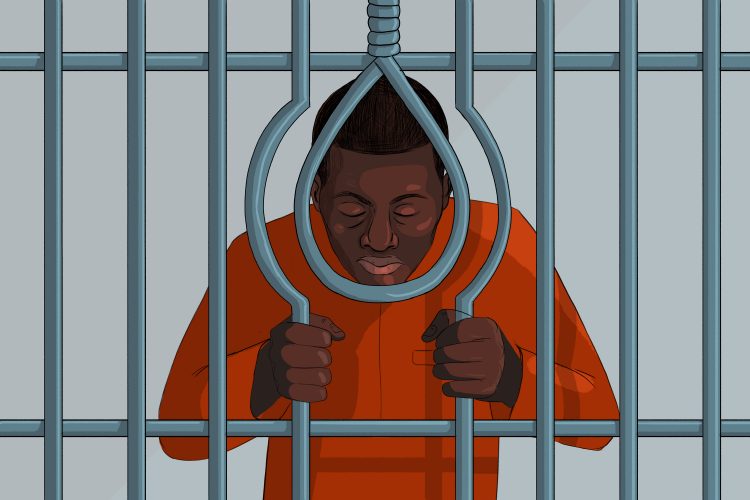Human Lives Human Rights: Execution also known as the death penalty, is a state-sanctioned practice of killing a person as a punishment for a crime that has existed for a long time in different human societies.
Capital punishment or execution is carried out through various methods, like hanging, decapitation, crucifixion, electrocution, gas inhalation, Lethal injection and shooting.
Today, the phenomenon of execution is no longer considered to be a mere criminal punishment. Rather, the prevailing view is that it is a deliberate and systematic deprivation of a human right to life.
Executions are carried out collectively or individually. It can be a punishment in response to an individual crime with the execution of only one person, or it can be carried out in response to a group with the collective execution of individuals.
Capital punishment or execution is either carried out in a country to punish political opponents, or times of war against military forces or civilians of the countries involved in the war, which is the enemy at the time of war.
- Execution of European Jews by the Nazi regime in Germany during World War II.
- Execution of over 22,000 members of the Polish military by the former Soviet Army in the Katyn forests during World War II.
- Execution of Manchurian civilians by the Japanese army.
- Execution of political opponents of the Islamic Republic of Iran during the years after the victory of the Islamic Revolution from 1979 to 1988, especially the mass execution of about 5,000 imprisoned members of the Mujahedin Khalq Organization in the summer of 1988.
- The mass execution of Iraqi Shiites and Kurds by the Iraqi Ba’athist regime in 1991.
- Execution of all men and children over the age of 12 in the town of Srebrenica in Bosnia-Herzegovina by the former Yugoslav Army in May 1995.
In all these cases, the victims have been deprived of right to life in a completely purposeful and systematic manner, regardless of the fact that crimes such as crimes against humanity, genocide and war crimes have been committed.
In this regard, Article 3 of the Universal Declaration of Human Rights states: “Everyone has the right to life, liberty and security of person.”
In fact, the right to life is an inherent and attributive right that exists for every person from birth. This is not a grant or an acquired right that can be revoked. The right to life has also been mentioned by the United Nations Human Rights Committee as a superior right.
Indeed, the right to life is the first of a set of fundamental human rights that is consistent with all the general principles and norms of international human rights.
Therefore, from the modern perspective of human rights, the right to life is an absolute fundamental right and the basis of other rights and cannot be taken away. Therefore, it must be said that any punishment such as the death penalty, which is in clear conflict with the right to life, is incorrect and must be rejected.
On the other hand, despite the fact that many countries, such as the European Union, have abolished the death penalty, a number of countries are still implementing this phenomenon against human rights, which unfortunately also includes the names of some developed countries in this list.
The names of some of the above countries are as follows:
- The Islamic Republic of Iran
- The Kingdom of Saudi Arabia
- The Arab Republic of Iraq
- The People’s Republic of China
- Kingdom of Japan
- United States of America
- Russian Federation
- Islamic Republic of Pakistan
- Singapore
- Arab Republic of Egypt
- Hashemite Kingdom of Jordan
- Islamic Republic of Afghanistan
- Kingdom of the United Arab Emirates
- Indonesia
- Kingdom of Bahrain
- Republic of India
- Kingdom of Malaysia
- Kingdom of Kuwait
- Kingdom of Oman


















